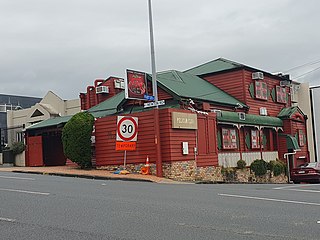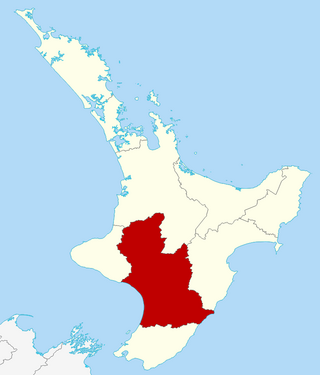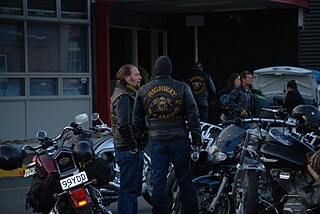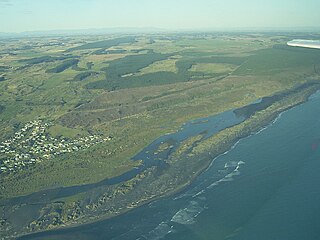
Prostitution in New Zealand, brothel-keeping, living off the proceeds of someone else's prostitution, and street solicitation are legal in New Zealand and have been since the Prostitution Reform Act 2003 came into effect. Coercion of sex workers is illegal. The 2003 decriminalisation of brothels, escort agencies and soliciting, and the substitution of a minimal regulatory model, created worldwide interest; New Zealand prostitution laws are now some of the most liberal in the world.

The New Zealand Parliament is the unicameral legislature of New Zealand, consisting of the Sovereign (King-in-Parliament) and the New Zealand House of Representatives. The King is usually represented by his governor-general. Before 1951, there was an upper chamber, the New Zealand Legislative Council. The New Zealand Parliament was established in 1854 and is one of the oldest continuously functioning legislatures in the world. It has met in Wellington, the capital of New Zealand, since 1865 and in its current building since 1922.

Whanganui, also spelt Wanganui, is a city in the Manawatū-Whanganui region of New Zealand. The city is located on the west coast of the North Island at the mouth of the Whanganui River, New Zealand's longest navigable waterway. Whanganui is the 19th most-populous urban area in New Zealand and the second-most-populous in Manawatū-Whanganui, with a population of 42,800 as of June 2023.

Manawatū-Whanganui is a region in the lower half of the North Island of New Zealand, whose main population centres are the cities of Palmerston North and Whanganui. It is administered by the Manawatū-Whanganui Regional Council, which operates under the name Horizons Regional Council.

Taumarunui is a small town in the King Country of the central North Island of New Zealand. It is on an alluvial plain set within rugged terrain on the upper reaches of the Whanganui River, 65 km south of Te Kūiti and 55 km west of Tūrangi. It is under the jurisdiction of Ruapehu District and Manawatū-Whanganui region.

Rana Donald Waitai was a New Zealand politician and lawyer. He was a member of the New Zealand House of Representatives representing Te Puku o Te Whenua, for the New Zealand First Party and Mauri Pacific Party from 1996 to 1999. He later served as a member of the Wanganui District Council.
Michael Laws is a New Zealand politician, broadcaster and writer. Laws was a Member of Parliament for six years, starting in 1990, initially for the National Party. In Parliament he voted against his party on multiple occasions and in 1996 defected to the newly founded New Zealand First party, but resigned from Parliament the same year following a scandal in which he selected a company part-owned by his wife for a government contract.

The Whanganui River is a major river in the North Island of New Zealand. It is the country's third-longest river, and has special status owing to its importance to the region's Māori people. In March 2017 it became the world's second natural resource to be given its own legal identity, with the rights, duties and liabilities of a legal person. The Whanganui Treaty settlement brought the longest-running litigation in New Zealand history to an end.

Kerry James "Chester" Borrows was a New Zealand National Party politician who served as a Member of the New Zealand Parliament (MP) from 2005 to 2017.

Referendums are held only occasionally by the Government of New Zealand. Referendums may be government-initiated or held in accordance with the Electoral Act 1993 or the Citizens Initiated Referenda Act 1993. Nineteen referendums have been held so far ; fourteen were government-led, and five were indicative citizen initiatives.

Todd Michael McClay is a New Zealand politician and former ambassador. He is the Member of Parliament for Rotorua. He was previously an ambassador for the Cook Islands and Niue to the European Union.

There are numerous gangs in New Zealand, of varying criminality, organisation and ethnicity, including outlaw motorcycle gangs, street gangs and ethnically based gangs. A chapter of the Hells Angels motorcycle club was formed in Auckland in 1961, the first Hells Angels chapter outside the US. Soon after, the Mongrel Mob formed in Hastings and Wellington, developing into a predominantly Māori and Pacific Islander gang, and having the largest membership in the country. Through the 1960s and 1970s, other outlaw motorcycle clubs and ethnically based gangs formed, including another predominantly Māori gang, Black Power, which grew to rival the Mongrel Mob.
The Māori protest movement is a broad indigenous rights movement in New Zealand. While there was a range of conflicts between Māori and European immigrants prior to the signing of the Treaty of Waitangi in 1840, the signing provided one reason for protesting. Disagreements in the decades following the signing sometimes included war.

A gang patch in New Zealand refers to the identifying insignia of a street gang. Patches have been linked to intimidation of members of the public by gang members. Gang patches perform much the same identification role as gang colours do in other countries.

Paul Jonathan Goldsmith is a New Zealand historian and politician. The biographer of several leading right-wing political and business figures, he was first elected a list member of the New Zealand House of Representatives for the National Party at the 2011 election.

Koitiata is a settlement located in the southwestern part of Rangitikei District of the Manawatū-Whanganui region of New Zealand's North Island. At the time of the 2018 census, Koitiata had a population of 126. Marton is located 24 km to the east and Whanganui is located 29 km to the northwest. Nearby Koitiata is Lake Koitiata.

The Prohibition of Gang Insignia in Government Premises Act 2013 is legislation passed by the New Zealand Parliament on 7 August 2013, which went into effect when given royal assent on the 12 August 2013. The act prevents "gang insignia" defined in the act as —
a) a sign, symbol, or representation commonly displayed to denote member of, an affiliation with, or support for a gang, not being a tattoo; and b) includes any item of clothing to which a sign, symbol, or representation referred to in paragraph (a) is attached.

The Conversion Practices Prohibition Legislation Act 2022 is an Act of Parliament in New Zealand that bans conversion therapy practices that seek to change or suppress a person's sexual orientation, gender identity, or gender expression. The Bill passed its third and final reading on 15 February, receiving royal assent on 18 February 2022.
Māori wards and constituencies refer to wards and constituencies on urban, district, and regional councils in New Zealand that represent local constituents registered on the Māori parliamentary electoral roll vote. Like Māori electorates within the New Zealand Parliament, the purpose of Māori wards and constituencies is to ensure that Māori are represented in local government decision making.













